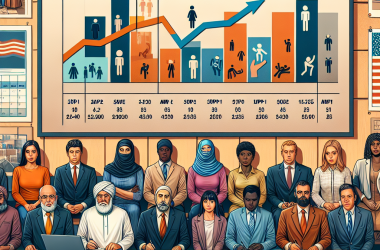“`html
Contrary to previous findings, a new study reveals that cognitive skills do not decline at age 30. In fact, scores obtained at age 65 are better than those achieved at age 20. Seniors often face numerous prejudices, such as being less adaptable, struggling with new technologies, and lacking dynamism. These stereotypes hinder their integration into the labor market, amplifying concerns about their cognitive abilities. Previous research suggested that cognitive decline began as early as age 30, or even earlier, raising questions about the employability of older individuals.
A recent study published in the journal Science Advances provides a fresh perspective on this debate, aligning with the government’s priority to reduce senior unemployment. The researchers assert that “cognitive skills decline later than previously thought.” Importantly, they emphasize that this decline is not inevitable; it primarily affects individuals who do not actively engage their skills in work or home environments.
Les choix comportementaux peuvent surmonter les changements biologiques naturels.
To reach these conclusions, the researchers employed a different methodology. Unlike previous studies that compared younger individuals’ performances with those of older adults, they analyzed data from the same respondents, reassessing their capabilities after three and a half years. The study indicates that skills increase in individuals until age 45 in literacy and until age 40 in numeracy. Remarkably, the scores obtained at 65 years surpass those recorded at 20 years. “Overall, our findings challenge the notion that biological aging inevitably leads to a decline in skills,” the authors conclude.
Maintaining cognitive health is indeed possible with consistent mental stimulation. Engaging in activities such as calculating prices, costs, or budgets for mathematics, or reading letters, memos, or emails for literacy helps individuals preserve their skills well into their sixties. Those who partake in these activities frequently show a significant increase in skills until their fifties, after which their abilities plateau. In contrast, individuals who engage less often in similar activities begin to experience competence loss by their mid-thirties. “Behavioral choices can overcome natural biological changes,” assert the authors.
Published on March 5, 2025, in Science Advances by Eric Hanushek from Stanford University, Lavinia Kinne from the German Institute for Economic Research in Berlin, and Frauke Witthöf and Ludger Woessmann from the IFO Institute for Economic Research in Munich, this study utilized data from the Programme for the International Assessment of Adult Competencies (PIAAC), which tested adults aged 16 to 65 in 39 countries. The researchers focused solely on data from Germany, which re-interviewed and retested participants three and a half years after the initial survey.
“`




